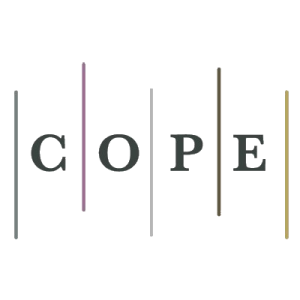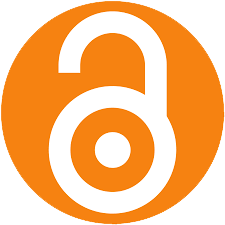Generative artificial intelligence (AI) refers to technologies capable of creating diverse forms of content, including written text, images, audio, and synthetic datasets. Well-known examples include ChatGPT, Jasper AI, Rytr AI, NovelAI, and DALL·E.
The Horizon Journal of Humanities and Social Sciences Research (JHSSR) recognizes that generative AI, particularly applications built on Large Language Models (LLMs) such as ChatGPT, is increasingly being used as a supportive tool in academic writing. Accordingly, the journal will accept manuscripts where such technologies have been employed.
When authors choose to integrate generative AI or AI-assisted tools in their writing process, they may only do so for the purpose of enhancing clarity, readability, and language quality. Their use must remain under direct human supervision, with authors carefully revising, correcting, and refining all AI-generated material to guard against potential inaccuracies, omissions, biases, or errors. Full responsibility ultimately rests with the authors, who remain accountable for the correctness of the content, proper attribution of sources, and the avoidance of plagiarism.
AI systems or AI-assisted technologies must not be listed as authors or co-authors, nor should they be cited as such. Authorship implies intellectual contributions and accountability that are inherently human. In addition, the use of AI tools does not provide guarantees of confidentiality or data security. By contrast, the routine use of standard support tools—such as grammar and spell checkers, citation managers, or plagiarism detection software—falls outside this policy and therefore does not require acknowledgment in submissions.
To ensure transparency, authors who have used generative AI or AI-assisted technologies in preparing their manuscript are required to include a disclosure under a dedicated section titled “Declaration of Generative AI and AI-assisted Technologies in the Writing Process”, placed immediately before the References list. Example of Declaration of Generative AI and AI-assisted Technologies in the Writing Process:
“During the preparation of this manuscript, the author(s) employed [NAME OF THE GENERATIVE AI AND AI-ASSISTED TECHNOLOGIES] for [PURPOSE, e.g., language editing, drafting background section] and used it for [TASK, e.g., synthesizing literature on cultural perspectives in contemporary society, or thematic framing of social attitudes toward digital literacy]. Following its use, the author(s) thoroughly reviewed, revised, and edited the content, and accept full responsibility for the integrity and accuracy of the final work.”
The use of AI software, including ChatGPT, must be disclosed either in the Materials and Methods section (or, where not applicable, in the Acknowledgments). However, such tools may not be designated as authors. Authors remain solely responsible for carefully verifying all outputs generated through AI assistance.
For authors
Use of Generative AI and AI-Assisted Technologies in Academic Writing
This policy applies exclusively to the writing stage of scholarly work, and does not cover the use of AI tools for data analysis, interpretation, or generating research insights.
If authors employ generative AI or AI-assisted technologies in preparing their manuscripts, such use must be limited to enhancing the clarity, readability, and overall language of the text. Any application of these technologies must remain under human oversight and control, with authors carefully reviewing, revising, and editing the outcomes. Since AI can produce text that appears authoritative yet may contain inaccuracies, omissions, or biases, authors hold full responsibility for ensuring the accuracy, integrity, and reliability of their manuscripts.
All instances of generative AI or AI-assisted technology use must be disclosed within the manuscript, and a corresponding statement will be published alongside the work. Such disclosure fosters transparency and accountability, strengthens trust among authors, readers, reviewers, and editors, and ensures alignment with the terms of use of the relevant tools.
Importantly, AI systems must not be listed or cited as authors. Authorship encompasses intellectual contributions and responsibilities that only humans can assume. Each co-author must be able to affirm the validity of the manuscript, approve the final version, and accept accountability for all aspects of the work, including addressing questions of accuracy or integrity. Authors are also expected to confirm the originality of the submission, ensure that only eligible contributors are credited, and verify that no third-party rights are infringed. All authors should also familiarize themselves with the journal’s Publishing policies prior to submission.
Use of Generative AI and AI-Assisted Tools in Figures, Images, and Artwork
The Journal of Humanities and Social Sciences Research (JHSSR) does not permit the use of generative AI or AI-assisted technologies to create, modify, or manipulate images in submitted manuscripts. Prohibited practices include enhancing, obscuring, moving, removing, or adding elements within a figure or image. Adjustments to brightness, contrast, or color balance are acceptable, provided they do not conceal, distort, or eliminate information contained in the original image. Submitted manuscripts may be examined using forensic software or other specialized tools to detect possible image manipulation.
The sole exception to this restriction applies when AI or AI-assisted tools form part of the research design or methodology—for example, in studies employing AI-driven imaging techniques for data generation or interpretation, such as in biomedical imaging. In these cases, authors must describe their use of AI tools in the methods section with sufficient detail to allow reproducibility. This description should specify how the AI tool was applied, the name of the model or software, version and extension numbers, and the manufacturer. Authors are expected to comply with the terms of use of the software and to ensure accurate attribution of content. When requested, authors may be required to provide unmodified, pre-AI images and/or the raw composite files from which the final figures were derived for editorial review.
Generative AI or AI-assisted technologies may not be used to produce artwork such as graphical abstracts. Use of AI in cover art may only be considered with prior approval from the journal editor and publisher, provided the author demonstrates that all relevant rights have been secured, appropriate permissions obtained, and proper attribution ensured.
For reviewers
Use of Generative AI and AI-Assisted Technologies in the Peer Review Process
Manuscripts submitted for peer review must be handled with the utmost confidentiality. Reviewers are strictly prohibited from uploading a manuscript, or any part of it, into a generative AI system, as doing so could compromise the authors’ confidentiality, infringe upon proprietary rights, and, where personal data is included, potentially breach privacy protections.
This obligation of confidentiality also applies to the peer review report itself, which may contain sensitive information about the manuscript and its authors. Consequently, reviewers must not use generative AI tools to draft, edit, or refine their reports, even for purposes of language improvement or readability.
Peer review is a cornerstone of scholarly publishing, requiring independence, integrity, and critical evaluation that only human reviewers can provide. Generative AI tools lack the capacity for the nuanced judgment, analytical reasoning, and original assessment that peer review demands. Reliance on such technologies poses risks of error, omission, or bias. Reviewers are therefore fully responsible and accountable for the originality, accuracy, and reliability of the reviews they submit.
While JHSSR’s policy allows authors to use generative AI or AI-assisted tools in preparing their manuscripts—strictly for language refinement and with mandatory disclosure—reviewers may not use such tools in the evaluation process. Where relevant, reviewers will find author disclosures regarding AI use at the end of manuscripts, immediately before the reference list, as per our Instructions to Authors Instructions to Authors in JHSSR’s.
For editors
Use of Generative AI and AI-Assisted Technologies in the Editorial Process
All submitted manuscripts must be regarded as confidential documents. Editors are not permitted to upload any manuscript, or portions of it, into generative AI tools, as this may compromise author confidentiality, infringe proprietary rights, or—where personal data is present—violate privacy protections.
This obligation of confidentiality also applies to all editorial correspondence, including notifications and decision letters, which may contain sensitive information relating to both the manuscript and its authors. Editors must therefore refrain from using AI systems to generate, refine, or edit such communications, even for the purpose of language improvement.
The peer review process is central to the integrity of scholarly publishing, and JHSSR upholds the highest ethical standards in its editorial practices. Oversight of manuscript evaluation requires intellectual responsibility and independent judgment that cannot be delegated to generative AI systems. Such technologies are not suited to the nuanced analysis, critical reasoning, and ethical decision-making essential to editorial work, and their use risks producing incomplete, inaccurate, or biased conclusions. Editors remain fully responsible for the editorial process, including manuscript assessment, final decisions, and official communication with authors.
In line with JHSSR’s AI author policy, authors may use generative AI or AI-assisted tools during the writing stage—exclusively for language and readability improvements—with appropriate disclosure, as per our instructions in JHSSR’s Instructions to Authors. Editors will find such disclosures placed at the end of manuscripts, directly before the reference list. If an editor suspects that an author or reviewer has breached the journal’s AI usage policies, they are expected to report the matter to the publisher.
At the same time, JHSSR acknowledges the potential of new AI-driven tools that can ethically support editors and reviewers. The journal continues to develop and adopt in-house technologies designed to enhance efficiency while upholding strict standards of confidentiality and data protection.
AI Content Check: Manuscripts submitted to JHSSR must not contain more than 20% material generated with AI or AI-assisted technologies.



